“Fight Against Stupidity And Bureaucracy”
.

31st December has rolled round again and so it’s time to bring 2013 to a close.
This is always an appropriate time to reflect on what has happened during the previous twelve months.
These are just some of the things I remember about 2013. It’s a personal choice and you may have thought of other things that could have been mentioned, but, in spite of the fact that the time seems to fly, a lot happens in the space of a year so only so much can be included.
Hope you find something of interest.
Enjoy.
.
.
The Weather
As good a place as any to start since the weather is a constant topic of conversation at all times of the year.
Statistically 2013 appears to have been a year where major weather events were at a minimum. Not much comfort to those at the extreme end of that distribution curve and who suffered hardship and discomfort as the result of extreme weather.
But here are some of what I think are the most memorable weather events of 2013.
In January Malaysia, Indonesia and South-East Africa saw major flooding events caused by monsoon and other heavy rainstorms. It also saw Australia’s hottest month on record.

February saw the largest snowfall from a single storm ever recorded in the North-eastern United States. Major winter storms also affected central US states and even the Texas panhandle.

In March New Zealand saw its worst drought in more than 30 years. China had its second warmest recorded March temperature, while in usually sunny Spain they had their wettest March on record with three times the average for the previous three decades.

Contrast was the name of the game in the US in April with California experiencing drought conditions while in the Central US there was widespread flooding.
May was the wettest ever seen in China for forty years. Indeed it was a month of extremes with more than 1 million people evacuated from their homes as Tropical Cyclone Mahasan struck Bangladesh, while in the US the widest ever observed tornado hit Oklahoma bringing more than 20 deaths and widespread devastation.

June was the hottest ever, Portugal, China, Hungary, Finland, and Britain, all recorded heat-waves, and the temperature in Death Valley, California hit 129.2F (54.0C), the hottest temperature ever recorded on Earth during June.
In July in the US 19 firefighters were killed trying to contain wildfires in Prescot Arizona.

More contrasts later in the year with the 2013 Atlantic Ocean hurricane season being one of the weakest recorded in 50 years, with no major hurricanes in the Caribbean, Gulf of Mexico or the Atlantic basin. Only Ingrid and Humberto out of the 13 named storms reached hurricane strength.
In the western-north Pacific on the other hand, 30 major storms had been recorded by early November, 13 of them typhoon-strength. The biggest was typhoon Haiyan, possibly the most powerful tropical cyclone to make landfall in recorded history, which smashed into the southern Philippines, killing at least 6,000 people and wreaking massive damage.

The end of the year saw the focus change to Europe, where a major depression moved eastwards from northwest Scotland to southern Sweden bringing strong winds of up to 142 mph and a massive tidal surge that affected coastal areas around the North Sea. In the UK thousands of people had to evacuate their homes along the east coast, where the coastal surge was the worst since 1953 with local flooding and some houses being washed into the sea as cliffs gave way. At least six people died by the time the winds moved finally down over northeast Europe.

.
.
Scandals
2013 has been noted as a great year for scandal and corruption. Here are some of the highlights (or low lights perhaps?).
.
In the food industry we had the Aflatoxin scandal, where throughout much of Europe contaminated milk and other food products were found to be ‘infested’ with this toxin.
Major supermarket retailers were the subject of another major scandal in the UK when they were found to be selling meat products labeled “100% beef” which were actually horse meat.

.
In sport several Major League Baseball players were accused of obtaining performance-enhancing drugs, specifically human growth hormone, from the now-defunct rejuvenation clinic Biogenesis of America.
.
However, undoubtedly the biggest scandal of 2013 was perpetrated by the US Government.
It was discovered during 2013, as the result of documents released by whistleblower Edward Snowden, that US Government agencies, in particular the NSA, had been guilty of a widespread snooping and spying campaign, even on its own citizens.
It was reminiscent of the old Soviet Union and the KGB, but it was happening in the “Land of the Free”. The snooping projects included “PRISM”, a clandestine mass electronic surveillance data mining program that collects stored Internet communications based on demands made to Internet companies such as Google; “Dropmire”, a secret surveillance program of surveillance of foreign embassies and diplomatic staff, including those of NATO allies; “Fairview”, a secret mass surveillance program used to collect phone, internet and e-mail data in bulk from the computers and mobile telephones of foreign countries’ citizens; “Hemisphere”, a mass surveillance program conducted by US telephone company AT&T and paid for by the White House Office of National Drug Control Policy and the Drug Enforcement Administration; “MUSCULAR”, a surveillance program jointly operated by Britain’s Government Communications Headquarters (GCHQ) and the NSA that was used to secretly break into the main communications links that connect Yahoo and Google data centers around the world; and “XKeyscore”, a formerly secret computer system used by the United States National Security Agency for searching and analyzing Internet data about foreign nationals across the world.

.
In 2013, the United States Department of Justice, under Attorney General Eric Holder, also came under scrutiny from the media and some members of Congress for subpoenaing phone records from the Associated Press and naming Fox News reporter, James Rosen, a “criminal co-conspirator” under the Espionage Act of 1917 in order to gain access to his personal emails and phone records.
.
And the IRS was also condemned when it was revealed that it had targeted political groups applying for tax-exempt status for closer scrutiny based on their names or political themes.
.
All in all a bad year for the reputation and standing of the US Government.
.
.
In other countries perhaps the worst scandal of 2013 was “Danielgate”, a political scandal in which Mohammed VI, the King of Morocco, issued a pardon for a Spanish convicted serial child-rapist named Daniel Galván who was serving a 30 years prison sentence for the rape of at least 11 Moroccan children in Kenitra—a city where he had been living in since 2004.
The Pardon sparked unprecedented popular outrage in Morocco where several protests were held denouncing the monarch’s decision.
It was revealed later that this wasn’t the first time Mohammed VI had pardoned a convicted foreign paedophile, having pardoned Hervé Le Gloannec, a French citizen convicted of child rape and child pornography in 2006.
.
In India a Ponzi scheme operated by the Saradha Group financial Group, a consortium of Indian companies that was believed to be running a wide variety of collective investment schemes, collapsed causing an estimated loss of INR 200–300 billion (US$4–6 billion) to over 1.7 million depositors.
.
In politics there was the usual sex and drugs scandals during 2013. In May videos were exposed that showed Toronto Mayor Rob Ford smoking crack cocaine and commenting on political issues. Rob Ford consistently denied the existence of the video, and denied that he uses crack cocaine, remaining Mayor despite calls for him to step down. On November 5, 2013, Ford eventually admitted to smoking crack cocaine “probably in one of my drunken stupors”, and to hiding his drug abuse from his family, his staff and the people of Toronto, but pledged to continue on as Mayor.

.
Back in the US former member of the United States House of Representatives from New York City, Anthony Weiner, was involved in another sexual scandal relating to sexting, or sending explicit sexual material by cell phone. First caught in the Weinergate scandal in 2011 that led to his resignation as a congressman, this idiot has learned nothing. During his attempt to return to politics as candidate for mayor of New York City, Weiner admitted having sexted again, after more explicit pictures were published in July 2013.

.
.
Departures
As every year, 2013 saw many departures. Here are some of the better known faces that passed on during the year.
.
Astronauts, C. Gordon Fullerton and Scott Carpenter.

.
From politics, Ed Koch, U.S. Representative from New York (1969–1977) and Mayor of New York City (1978–1989), later a television judge in “The People’s Court”.

Margaret Thatcher aka “The Iron Lady”, daughter of a greengrocer who became the first woman Prime Minister of the UK.
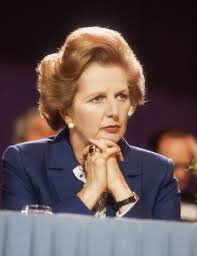
Hugo Chávez, Venezuelan politician and military officer and President since 1999.

.
Television and the movies also lost many well known characters including,
Conrad Bain, Canadian born and usually cast as the erudite gent, advice-spouting father or uptight, pompous neighbor, included roles in “Diff’rent Strokes”.

Michael Winner a director best known for dramatic and violent movies like “Death Wish” starring Charles Bronson.

Richard Briers, television comedy actor well known on British sitcoms such as “The Good Life” and “Ever Decreasing Circles”.

Dale Robertson who, after service during WWII in North Africa and Europe, became an actor and made his name in television Westerns in the 1950s and ’60s.

Richard Griffiths, a British character actor who came from radio and the classical stage.

Steve Forrest began his screen career as a small part contract player with MGM and made his name as an action man in the 1960’s and 70’s. He is a brother of star Dana Andrews.

New Jersey-born James Gandolfini began acting in the New York theater, making his Broadway debut was in the 1992 revival of “A Streetcar Named Desire” with Jessica Lange and Alec Baldwin. James’ breakthrough role was his portrayal of Virgil the hitman in Tony Scott’s “True Romance”, but the role that made him a household name was as Tony Soprano in the award winning television series “The Sopranos”.

Gary David Goldberg was born in Brooklyn, New York but moved to Hollywood to try to make it as a writer. He was responsible for the hit series “Spin City”.

Although Dennis Farina did not start acting until he was 37 years old, he achieved success as a character actor, often being cast as a cop or gangster.

Eileen Brennan was a supremely gifted, versatile player who could reach dramatic depths, as exemplified in her weary-eyed, good-hearted waitress in “The Last Picture Show”, or comedy heights, as in her sadistic drill captain in “Private Benjamin”. Perhaps one of her best remembered performances was in the hit movie “The Sting” with Paul Newman and Roberts Redford and Shaw.

Lisa Robin Kelly first made her acting debut, at age 21, in a 1992 episode of “Married with Children”, and went on to guest-star in many popular television shows, such as “Murphy Brown”, “The X Files”, “Sisters and Silk Stalkings”. She got her biggest break in “Days Of Our Lives”.

David Frost achieved success on both sides of the Atlantic, first in the UK and then in America. He is most remembered for his political interviews, particularly those with former US President Richard Nixon.

In a film career that has extended for over four decades, Ed Lauter has starred in a plethora of film and television productions since making his big screen debut in the western “Dirty Little Billy”.

Hal Needham was the highest paid stuntman in the world. In the course of his career suffered many injuries breaking 56 bones, including his back twice, punctured a lung and knocked out a few teeth. His career has included work on 4500 television episodes and 310 feature films as a stuntman, stunt coordinator, 2nd unit director and ultimately, director. He wrote and directed some of the most financially successful action comedy films.
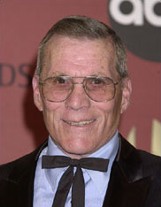
Robin Sachs, 61, was an English actor who made it into American television series such as “Buffy the Vampire Slayer”, “Galaxy Quest” and “Babylon 5”.

Frank Thornton, was a British actor best remembered fot his role as “Captain Peacock” in the long running sitcom “Are You Being Served?”. He also appeared in “Last of the Summer Wine” and “Gosford Park”.

Bryan Forbes, was another Briton and an accomplished actor (“The League of Gentlemen”), director (“The Stepford Wives”) and screenwriter (“Chaplin”)
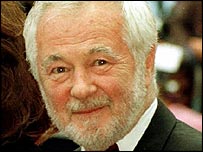
Lewis Collins, was most famous and best loved for his role as action man “Bodie” in the television series “The Professionals”. He also starred in the terrorist hostage movie “Who Dares Wins” loosely based on the dramatic Iranian Embassy siege in London in 1980.

Paul William Walker who was killed in a car accident was an American actor and the founder of Reach Out Worldwide. He became famous in 1999 after his role in the hit film “Varsity Blues”, but later garnered fame as “Brian O’Conner” in “The Fast and the Furious” film series. His other well known works are “Eight Below”, “Running Scared”, “The Lazarus Project”, “Into the Blue”, “Joy Ride”, “She’s All That”, “Takers”, and “Hours”.

Peter O’Toole, was a British-Irish actor with a reputation as a bit of a hell-raiser. Among his movie credits he starred in “Lawrence of Arabia”, “The Lion in Winter”, “Becket”, and “Troy”.
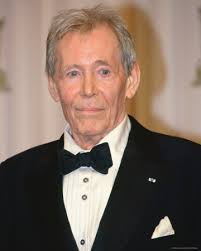
.
.
The music scene too has lost a few well known names during 2013. They include,
.
Patti Page (born Clara Ann Fowler) toured the US in the late 1940s with Jimmy Joy, and notably sang with the Benny Goodman band in Chicago.

Patty Andrews and her sisters, Maxene and Laverne, were “The Andrews Sisters”, an American close harmony singing group of the swing and boogie-woogie eras. They accumulated 19 gold records and sales of nearly 100 million copies.

Lou Reed formed the group “The Velvet Underground” with Welsh multi-instrumentalist John Cale, second guitarist Sterling Morrison, and drummer Maureen Tucker in New York in 1965. The group soon became a part of Andy Warhol’s Factory scene, which housed a great number of experimental artists at the time.

Never as famous as his namesake Elvis, Reg Presley was a British singer and songwriter. His group was called “The Troggs” and among many other hits, he composed “Love Is All Around” which was first a hit for the Troggs but made real fame by the group “Wet Wet Wet” when it featured in the movie “Four Weddings And A Funeral” and spent 15 weeks at number one in the UK charts in 1994.

.
.
Sports best known departure during 2013 was former WBC world heavyweight champion boxer Ken Norton, remembered for his trilogy of fights with Muhammad Ali. He defeated Ali in their first bout by a fifteen round split-decision, a fight in which Norton famously broke Ali’s jaw. Norton also fought a classic battle with Larry Holmes over fifteen brutal rounds in 1978, a fight which ranks as one of the greatest heavyweight contests in boxing history.

.
.
The world of Pubishing & Books saw several famous departures during 2013.
.
Tom Clancy whose fiction works, “The Hunt for Red October”, “Patriot Games”, “Clear and Present Danger”, and “The Sum of All Fears”, have been turned into commercially successful movies with actors Alec Baldwin, Harrison Ford, and Ben Affleck as Clancy’s most famous fictional character “Jack Ryan”.
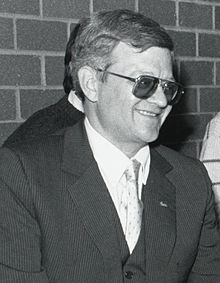
Robert Kee, British writer, journalist and broadcaster best known for his historical works on World War II and Ireland.
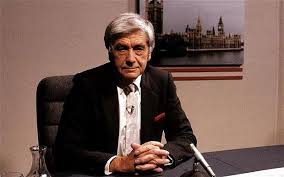
Steven Utley, was an American writer of poems, humorous essays and other non-fiction, but best known for his science fiction stories.
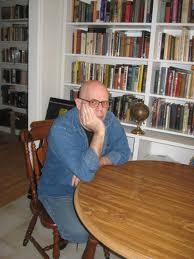
Dave Hunt was a Christian Evangelist speaker, radio commentator and author, in full-time ministry from 1973 until his death. He wrote numerous books on theology, prophecy, cults, and other religions, including critiques of Catholicism, Islam, Mormonism, and Calvinism, among others.
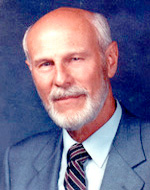
Richard Matheson, was an American author and screenwriter, primarily in the fantasy, horror, and science fiction genres. Known best as the author of “I Am Legend”, a 1954 horror novel that has been adapted for the screen four times, five more of his novels or short stories have also been adapted as major motion pictures, namely “The Shrinking Man”, “Hell House”, “What Dreams May Come”, “Bid Time Return” (filmed as “Somewhere in Time”), “A Stir of Echoes” and “Button, Button”. Matheson also wrote numerous television episodes of “The Twilight Zone” for Rod Serling, including “Nightmare at 20,000 Feet” and “Steel”. He later adapted his 1971 short story “Duel” as a screenplay which was promptly directed by a young Steven Spielberg, for the television movie of the same name.

William Stevenson, was a British-born Canadian writer, whose 1976 book “A Man Called Intrepid” was a best-seller and made into a 1979 mini-series starring David Niven. Stevenson followed it up with a 1983 book titled “Intrepid’s Last Case”. He published his autobiography in 2012. Stevenson is also noted for having set a record with another 1976 book, “90 Minutes at Entebbe”, about Operation Entebbe where Israeli commandos secretly landed at night at Entebbe Airport in Uganda and succeeded in rescuing the passengers of an airliner hi-jacked by Palestinian militants, while incurring very few casualties. The remarkable record is that in the pre-internet age Stevenson’s “instant book” was written, edited, printed and available for sale within weeks of the event it described.

.
.
Other notable people who died during 2013 include,
.
Mikhail Kalashnikov, a Russian arms designer responsible for the AK-47 rifle, millions of which have been produced.

Roy Brown Jr., an American car design engineer responsible for designs such as the Edsel, and the much more successful Ford Consul and Ford Cortina

.
========================================================================
.





















































